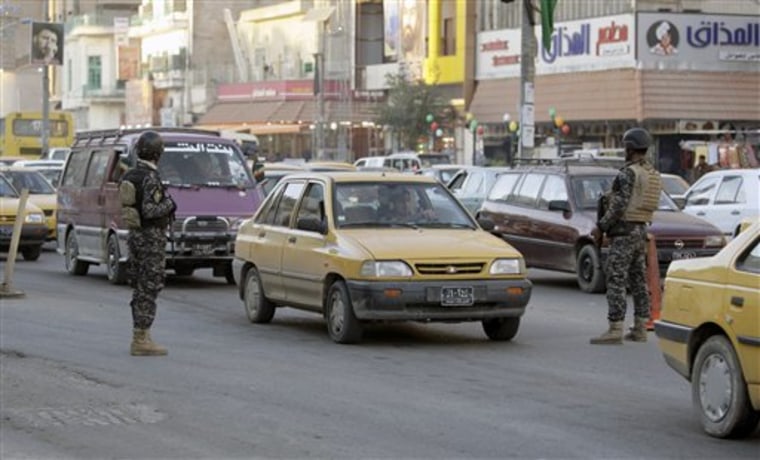A British group monitoring Iraqi civilian deaths said in its annual report that the number has dropped slightly since 2009 but warned of a lingering, low-level conflict in the years ahead.
The organization called Iraq Body Count said in its year-end report released Thursday that 3,976 civilians have been killed this year as of Dec. 25, compared with 4,680 in 2009.
While there was a drop from 2009 to 2010, the organization said the rate of decline was smaller than in previous years, indicating that future security improvements would be much harder to come by.
"The 2010 data suggest a persistent low-level conflict in Iraq that will continue to kill civilians at a similar rate for years to come," the report said.
The organization is believed to be the only non-governmental group to have consistently recorded Iraqi civilian casualties since the war began in March 2003. It includes civilians and police, but not deaths of U.S. forces, Iraqi forces engaged in fighting the insurgency or militants.
Casualty figures in the U.S.-led war in Iraq have been a hotly disputed topic. Critics on each side accuse the other of manipulating the death toll to sway public opinion.
American military officials said in the early years of the war that they did not count Iraqi civilian deaths. But last summer, the U.S. military quietly posted a tally on one of its websites putting the death toll between January 2004 and August 2008 of Iraqi civilians and security forces at almost 77,000.
The tally fell short of the Iraqi Human Rights Ministry's estimated 85,694 civilian and security deaths between January 2004 and Oct. 31, 2008.
Iraq Body Count puts the number of dead between 99,285 and 108,398.
The organization uses media reports and other sources to compile its information, which is updated daily on its website.
In a hopeful sign, the group said the second half of the year — specifically after American combat forces left the country in August — showed many fewer deaths than the first half. December is on track to be the least deadly month of the year, the group said.
The capital of Baghdad and the northern city of Mosul, 225 miles (360 kilometers) northwest of Baghdad, remained the most dangerous cities in the country, according to the organization's information.
Underscoring that point, a top police commander was killed in Mosul Wednesday morning when three suicide bombers stormed the compound where he was sleeping.
The group also said that the security crisis in Iraq was "notable for its sheer relentlessness." According to the group, an average of two explosions occurred each day that resulted in civilian deaths.
After the release of hundreds of thousands of U.S. military documents related to the Iraq war by the group WikiLeaks, Iraq Body Count said it had analyzed some of the documents and estimated that an additional 15,000 people had been killed that the group did not previously know about.
However, the group has not yet included those figures in its overall number of war dead because they were still going through each report to verify the figures.
__
Online: http://www.iraqbodycount.org/analysis/numbers/2010/
